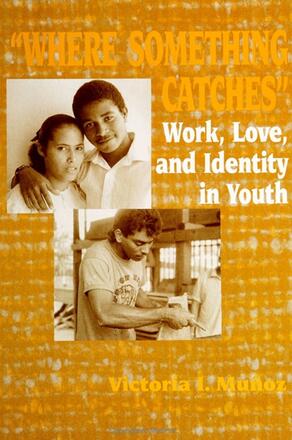
Where "Something Catches"
Work, Love, and Identity in Youth
Alternative formats available from:
Helps people working with youth think in new ways about the relationships between work, love, and identity and how these interact within the socio-political processes of class, race, gender, and sexuality.
Description
Where "Something Catches:" Work, Love, and Identity in Youth is a qualitative study of Latina and Latino youth. Youths from different regions of Puerto Rico and with a range of interests are interviewed about work, love, community, alternatives, and the support that they have been given. Using an innovative framework, a psychology of identity is explored by incorporating an analysis of the cultural, historical, and political context. The text includes documentary photographs.
Victoria I. Munoz is Assistant Professor of Psychology at Wells College. She is also a freelance photographer.
Reviews
"This book offers stunning insights into the formation of identity. In a language that is at once Muñoz's own—even as she acknowledges and extends the languages of others (notably women theorists of color, artists, poets, and photographers)—this study maps that most difficult and vulnerable terrain: identity as cultural, social, historical, and unique. Drawing upon a wide range of diverse and often conflictive theories, Muñoz is able to exceed such tensions and do something more than attempt to normalize 'development. ' Indeed, the vision of development and identity offered here is one that is respectful, critical, haunting, and insistent upon taking into account the unpredictable, volatile, and accidental combination of the social markers one bears, the histories one lives, the desires one can make, the sociality for which one hopes, the life chances one might take.
"Within this complicated context—beautifully realized—Muñoz crafts careful portraits of youth precariously engaged in the process of becoming something more. She achieves a careful tension throughout the text, namely marking identity as both a journey and as a site of fragmentation. In holding this tension, Muñoz contributes to a theory of alterity as the condition for identity as a possibility as opposed to identity as a life sentence. She is able to hold onto what she rightly terms, 'the educative work of nourishing' in how she analyzes the lives of particular youth. She offers visions and revisions of the development by juxtaposing with her own, the words of fifty-six youth living in Puerto Rico. " — Deborah P. Britzman, York University